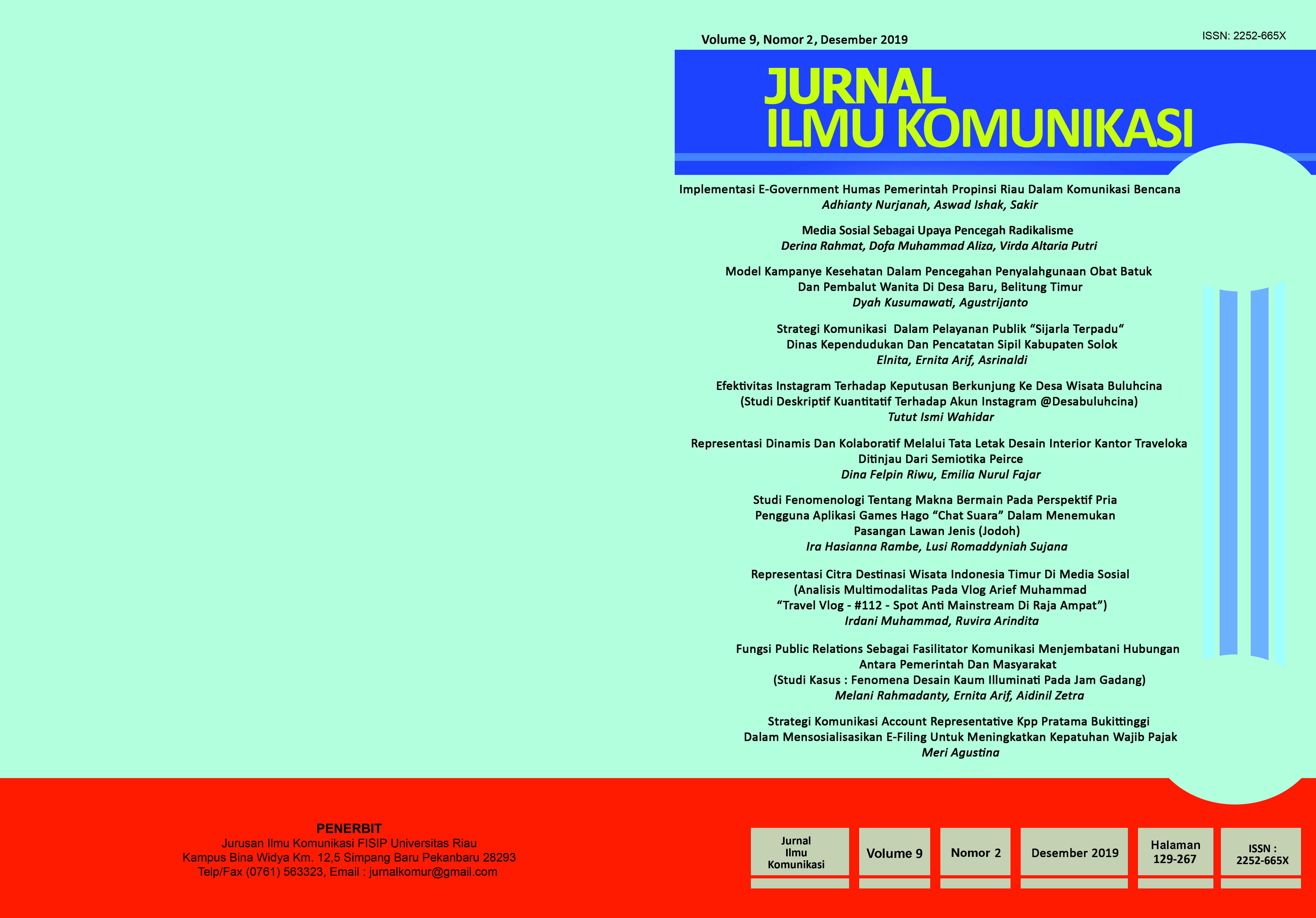MEDIA SOSIAL SEBAGAI UPAYA PENCEGAH RADIKALISME
DOI:
https://doi.org/10.35967/jkms.v8i1.7359Keywords:
Social media, terrorism, radicalismAbstract
This study found that the social media platforms are taking essential part in the life of every individual and can develop into a weapon of mass persuasion. However, the impact of rapid change within social media networks has created a devastating effect on the mind and society's perspective. As a consequence of these rapid changes, society is not able to decide which information is to absorb or pass it away. In addition, every individual or certain group has a great chance to persuade thoughts and actions within the framework of specific interests such as extremist movement, politics, and so on. Social media and online networking are considered to be anonymity with no cost or low cost as a means of mass communication. This makes social media platforms is an effective option to disseminate a variety of views, including extreme views to anyone who has network connectivity with online. There are steps that have been taken to prevent the communication and information technology of cyber patrols to prevent the dissemination of radical contents. Blocking accounts that contains radical materials can be an alternative to be taken in order to limit the information of radical understanding. However, the government is expected to take an important role in debriefing the fundamental ideology of Pancasila through students organization or social communities.References
Hery Nuryanto, sejarang pekembangan teknologi infomrasi dan
komunikasi, PT Balai Pustaka persero, Jakarta 2012
E. Grant, August 2008, Understanding Media Convergence, Oxford
University Press, South Carolina
Suryani T, Perilaku Konsumen Di Era Internet, Yogyakarta Graha Ilmu 2013
Andang Sunarto, Ph,D. 2017, Dampak Media Sosial Terhadap Paham
Radicalism
Kaplan, Andreas M.; Michael Haenlein 2010. Users Of The World, Unite! The Challenges And Opportunities Of Social Media. Business Horizons.
Creswell, John W 2007, Research design Pendekatan Kualitatif, Kuantatif dan Mixed, Thousand Oaks California
https://databoks.katadata.co.id/datapublish/2019/02/08/berapa-penggunamedia-sosial-indonesia
Mohammad Nazir. (1998) Metode Penelitian. Jakarta : Ghalia
Indonesia.
Moleong, J. Lexi. (2002) Metodologi Penelitian Kualitatif. Bandung :
Remaja Karya.
Downloads
Published
Issue
Section
License
The copyright of the article once accepted for publication shall be assigned to the journal as the publisher of the journal. The intended copyright includes the right to publish the article in various forms (including reprints). The journal maintains the publishing rights to the published articles.
Authors are permitted to disseminate published articles by sharing the link/DOI of the article at the journal. Authors are allowed to use their articles for any legal purposes deemed necessary without written permission from the journal with an acknowledgment of initial publication to this journal.
Jurnal Ilmu Komunikasi (JKMS) is licensed under a Creative Commons Attribution-NonCommercial-ShareAlike 4.0 International License.



